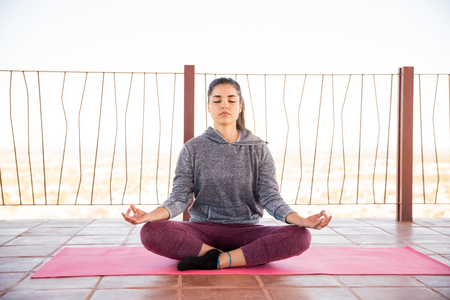Understanding Mental Resilience in Young People
Mental resilience is increasingly recognised as a vital skill for students and young adults, especially within the unique pressures of life in the UK. With exam stress, social expectations, and the constant presence of digital media, young people today face an ever-evolving set of challenges that can impact their wellbeing. In British schools and universities, there is growing awareness about the importance of supporting mental health—not just for academic success, but for long-term happiness and balance. Building mental resilience means equipping yourself to handle setbacks, adapt to change, and recover from difficult experiences. For many students across the UK, this might include managing anxieties around exam results, navigating friendship dynamics, or adjusting to new environments such as university halls or shared flats. Understanding these pressures is the first step towards creating practical strategies that nurture resilience and promote a healthier mindset.
2. The Science Behind Breathing Practices
Understanding the physiology of breathing is key to appreciating why mindful breathing can be so effective for students and young adults in the UK. When we breathe deeply and consciously, we engage the diaphragm, encouraging the body to switch from the stress-inducing fight or flight response to a calming rest and digest state governed by the parasympathetic nervous system. This shift not only reduces immediate feelings of anxiety but also improves long-term mental resilience—an essential trait for navigating exams, coursework, and daily pressures.
How Mindful Breathing Impacts Stress
Stress triggers the release of cortisol and adrenaline, hormones that prepare our bodies to react quickly but can cloud judgement and impair memory when present at high levels. Research from UK universities, including Kings College London, highlights that controlled breathing exercises can lower these stress hormone levels and enhance clarity of thought. By simply focusing on each inhale and exhale, students can anchor themselves in the present moment, reducing worry about future outcomes or past mistakes.
Key Physiological Benefits of Mindful Breathing
| Benefit | Physiological Mechanism |
|---|---|
| Lowered Heart Rate | Activates vagus nerve, promoting calmness |
| Reduced Cortisol Levels | Shifts balance towards parasympathetic activity |
| Improved Oxygenation | Enhances focus and cognitive function |
| Enhanced Emotional Regulation | Supports balanced neurotransmitter release |
UK Perspectives on Breathing Practices in Education
The National Health Service (NHS) now recognises breathwork as a complementary strategy for managing anxiety in young people. Some British schools and universities have even begun integrating short breathing exercises into daily routines or pastoral support sessions, recognising their potential to boost well-being and academic performance. The growing popularity of mindfulness clubs and initiatives across UK campuses further underscores the cultural relevance of these simple yet powerful techniques.

3. Traditional and Modern Breathing Techniques
Breathing practices have deep roots in both ancient wisdom and contemporary wellness trends, making them accessible and effective for today’s students and young adults across the UK. Whether you’re revising for exams in Manchester or managing uni life in London, finding the right breathing technique can make a real difference to your mental resilience.
Classic Methods: Tried and Trusted
One of the most popular and easy-to-learn traditional techniques is box breathing. This simple method involves inhaling for a count of four, holding your breath for four, exhaling for four, and then pausing for another count of four before repeating. It’s widely used by athletes, performers, and even emergency responders to steady nerves and regain focus—perfect for stressful moments like presentations or exam days.
Another well-known approach is diaphragmatic breathing, sometimes called “belly breathing.” By focusing on slow, deep breaths that expand your diaphragm rather than your chest, this technique naturally calms your nervous system and helps ground you when anxiety creeps in. It’s an excellent practice to add to your morning routine or as a way to wind down after a long day of lectures.
Modern UK Wellness Trends
In recent years, the UK has seen a surge in modern mindfulness practices that incorporate innovative breathing methods. Mindful breathwork sessions are now commonplace at universities and community centres—from Leeds to Brighton—often blending classic techniques with elements of meditation or movement.
Apps like Headspace or Calm, popular among British students, offer guided breathing exercises tailored for everything from boosting concentration to helping you drift off at night. Additionally, some yoga studios and fitness clubs across the UK now feature dedicated breathwork classes—sometimes called “Pranayama” or “Breath Fitness”—that combine tradition with a fresh perspective suited to today’s lifestyles.
Finding What Works for You
The beauty of these breathing practices is their flexibility; you can try them out during study breaks, before important events, or anytime you feel overwhelmed. Experiment with different techniques—perhaps start with box breathing before moving onto mindful breathwork—to discover what best supports your own wellbeing journey.
A Balanced Approach
No matter which method you choose, regular practice is key. By weaving a few minutes of intentional breathing into your daily routine, you’ll not only build greater mental resilience but also develop healthier habits that support both mind and body throughout your student years and beyond.
4. Everyday Breathing Exercises for Students
Incorporating simple breathing exercises into your daily routine can make a world of difference, especially when facing the pressures of student life in the UK. Whether youre preparing for exams at uni, revising for A-levels, or feeling nervous before a presentation, these practical techniques fit seamlessly into the hustle and bustle of a British student’s schedule. Below are some tailored breathing exercises you can use in various everyday scenarios:
Before Exams: Calm Your Nerves
Sitting in the exam hall can be daunting, but taking a few moments to centre yourself with deep, mindful breaths can help reduce anxiety and sharpen focus. Try the “Box Breathing” method right before the invigilator says ‘begin’:
| Step | Action |
|---|---|
| 1 | Inhale deeply through your nose for 4 seconds. |
| 2 | Hold your breath for 4 seconds. |
| 3 | Exhale slowly through your mouth for 4 seconds. |
| 4 | Pause and hold your breath for another 4 seconds. |
Repeat this cycle three to five times to promote calmness and clarity.
During Revision: Stay Focused
Long hours of revision in the library or at home can leave you mentally drained. The “4-7-8 Breathing” exercise is ideal during study breaks to re-energise and regain concentration:
- Breathe in quietly through your nose for 4 seconds.
- Hold your breath for 7 seconds.
- Exhale completely through your mouth for 8 seconds.
This technique not only refreshes your mind but also helps prevent burnout during those intense revision sessions.
In Social Situations: Ease Social Anxiety
If you feel anxious at Freshers events, group projects, or even casual gatherings, try “Diaphragmatic Breathing”. This technique helps regulate your heart rate and keeps social nerves in check:
- Sit or stand comfortably with one hand on your stomach.
- Breathe in slowly through your nose, allowing your stomach to expand (not just your chest).
- Exhale gently through pursed lips, feeling your stomach fall.
- Repeat this process for two minutes or until you feel more at ease.
A Handy Reference Table for Everyday Use
| Scenario | Breathing Exercise | Time Needed |
|---|---|---|
| Before Exams | Box Breathing (4-4-4-4) | 1–2 minutes |
| During Revision | 4-7-8 Breathing | 1–2 minutes per break |
| Social Situations | Diaphragmatic Breathing | 2 minutes or as needed |
Tips for Making It a Habit
Add reminders to your phone, pair exercises with daily routines like making tea, or practice with friends before seminars. Remember, consistency is key—regular practice will build resilience and help you thrive throughout your student journey in the UK.
5. Incorporating Breathing into Study and Campus Life
For students and young adults in the UK, balancing coursework, social life, and part-time jobs can often feel overwhelming. With deadlines, exams, and the constant buzz of campus activity, stress is almost a given. However, weaving simple breathing practices into your daily routine can make a real difference to your mental resilience and overall wellbeing.
Integrating Breathing Exercises in Everyday Routines
You don’t need to set aside large chunks of time or find a secluded spot on campus to benefit from mindful breathing. Instead, try incorporating short breathing breaks between lectures, during library sessions, or even while queuing for a coffee at the union café. A few slow, deep breaths can help reset your focus and calm pre-exam nerves.
Breathing with Study Groups
UK university culture often emphasises group study and collaboration. Suggest starting or ending group revision sessions with a one-minute breathing exercise. This not only sets a calm tone but also encourages collective mindfulness—something especially useful during intense periods like dissertation season or finals week.
Managing Common Stressors Through Breath
Whether you’re facing homesickness, adjusting to halls life, or juggling extracurricular commitments, mindful breathing is an accessible tool. If you find yourself feeling anxious before a seminar presentation or interview for a society position, try the “4-7-8” method: breathe in for four counts, hold for seven, then exhale slowly for eight. Many British students find this technique practical before entering high-pressure situations.
Making Space on Campus
Many UK universities now offer wellbeing rooms or quiet zones. These are ideal spots for practising breathing exercises if you need a more private setting. Alternatively, take advantage of green spaces on campus—parks or riversides are perfect for stepping away from noise and focusing on your breath, even just for five minutes.
Building Breathing Habits for Long-Term Resilience
The key is consistency. Set reminders on your phone or leave sticky notes in your planner as gentle prompts to pause and breathe throughout the day. Over time, these small habits can build up your resilience and create a greater sense of balance amidst the demands of student life in the UK.
6. Resources and Support in the UK
While breathing practices can offer remarkable benefits for mental resilience, it’s important to remember that additional support is always available. Across the UK, students and young adults can access a wide range of local resources tailored to their wellbeing needs.
University Wellbeing Services
Most UK universities provide dedicated wellbeing teams offering counselling, stress management workshops, and mindfulness sessions. Many institutions also run group activities centred around breathing techniques or meditation—check your university’s student services webpage for up-to-date information on what’s available.
Community Groups and Activities
Beyond campus, community centres often host free or low-cost yoga, breathwork, or mindfulness classes suitable for all levels. Local libraries and leisure centres may also have bulletin boards listing upcoming events focused on mental health and relaxation. Joining these groups can be a great way to practise new skills while connecting with like-minded peers in your area.
National Mental Health Organisations
If you’re looking for more structured support, several UK-wide charities offer resources specifically aimed at young people. MIND provides information on coping strategies and runs online communities where you can share experiences. Samaritans offers 24/7 confidential listening for anyone feeling overwhelmed. Youth Access connects young people with local advice and counselling services. These organisations often feature digital guides on breathing techniques as part of wider self-care advice.
Taking the Next Step
Exploring breathing practices is an empowering first step towards stronger mental resilience—but remember, you never have to do it alone. Whether you’re reaching out to your university’s wellbeing team, joining a local group, or contacting a national helpline, there are plenty of supportive pathways here in the UK designed to help you thrive.

